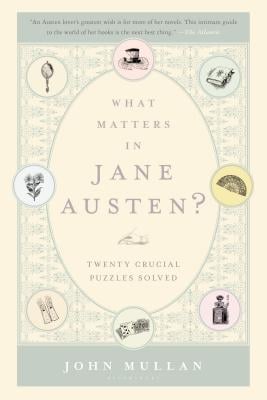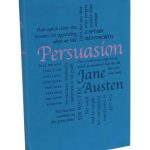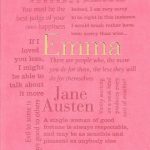What Matters in Jane Austen? by John Mullan (Bloomsbury, 2012) is a literary theory light book for the masses of Austenites around the globe. But I hope that does not scare casual readers away from it, because What Matters in Jane Austen? is full of observations about the novels to help even the most casual of readers fall in love with Austen’s well crafted novels once more.
In this volume, Mullan asks some questions of Austen’s texts and then answers them. Some of the questions include the following: What do the characters call each other, and why? What important characters never speak? How much does age matter? Who dies? and How experimental a novelist is Jane Austen? As Mullan answers these questions, he reveals the complexity that was Jane Austen’s world, but he also makes clear the ingenuity of Austen’s writing. It is in the minutiae that Austen shows her genius.
Take, for example, the question about the weather. Why is it important? Mullan discusses the impact of weather on Austen’s daily life, and then examines the weather’s impact on the characters and on the plot development within her novels. Such a seemingly mundane subject helps drive the direction of many of her novels. Reading that chapter amazed me to her sensitivity to the weather in the development of plots. But that is just one example. When we then read about how characters address each other, or what it means for sisters to share a room together, or about which characters never directly speak in the novel, or what lower classes of people appear in the novels, we see that Austen’s ability to tie the novels together are directly related to all of these seemingly small aspects of daily life.
Having read and dissected her finished novels, then, Mullan is able to draw a complete picture of why Austen’s novels were so exemplary when she wrote them and why they have remained classics 200 years later. Austen truly was expert at creating a scenario that perfectly mimicked her era, in a way that was truly revolutionary. Her heroines were imperfect (a shocking development for a novel!) so her plots revolved around characters with flaws and failings, some of whom had scandalous morals (think of Lydia Bennet and Maria Bertram).
However, when I say that Mullan “dissects” Austen’s novels, I don’t want you to think that What Matters in Jane Austen? is a dry university thesis. Rather, it is a delightful conversation with someone who has read Austen more times than he can count. Mullan is obviously so familiar with the novels that answering these questions, while certainly a lot of work, was simply an extension of loving Jane Austen’s novels. He writes with a conversational tone, and I almost feel like he’s with us, having a conversation with me and other Austenites as we delight in our favorite novels and novelist. At the same time, I had never considered myself an “Austenite” before. One need not be an expert to enjoy What Matters in Jane Austen?
What Matters in Jane Austen? freely discusses the plots of all of Austen’s completed novels and some of her unfinished works. As such, one may want to wait to read it until those works have been read. That said, Mullan truly brings the hows of the novels to life, and upon finishing his book, I eagerly anticipate my own reread of Austen’s own works. There is much to be gained in reading Austen after having read Mullan’s work as well.
If you have any desire to further appreciate Jane Austen or her works, What Matters in Jane Austen? is a must for your shelf.
Note: I read a digital review copy from the publisher via netgalley for review consideration.






It’s a funny thing about Jane Austen: I enjoyed Pride & Prejudice but have balked at reading more because of the Austen craze that seems to have swept the blogosphere in the past couple of years.
*sigh* I guess I’m just going to have to break down and, armed with a copy of What Matters in Jane Austen, tackle some of her other novels.At least I’ll be knowing what to look for!
This would be a good companion read for my planned eventual (I swear it’s going to happen) reread of all Jane Austen’s books in order of composition. I think that would be a fun thing! And it sounds like Mullan does a good job of drawing connections between all her books.